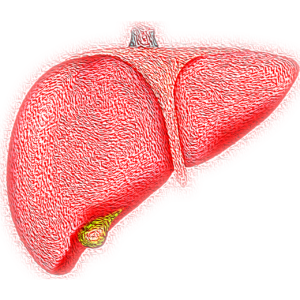
Photo by FotoshopTofs https://pixabay.com/users/FotoshopTofs-2171839/ on Pixabay https://pixabay.com/illustrations/human-body-anatomy-overview-1279987/
## Introduction
In today’s age of fad diets and quick fixes, the topic of diabetes reversal has gained significant attention, especially on social media platforms. While it is true that some individuals with type 2 diabetes can achieve remission through lifestyle changes, it is important to dispel the misleading claims surrounding diabetes reversal. In this comprehensive article, we will explore the facts and myths surrounding diabetes reversal, backed by scientific research and expert opinions.
Understanding Diabetes Types
It is crucial to first understand the different types of diabetes before delving into the concept of reversal. Type 1 diabetes is an autoimmune condition where the body’s immune system mistakenly attacks the insulin-producing cells in the pancreas. This type of diabetes cannot be reversed as it requires the lifelong administration of insulin.
On the other hand, type 2 diabetes is characterized by insulin resistance, where the body’s cells become less responsive to insulin. While this form of diabetes is generally managed through lifestyle modifications and medication, some individuals may achieve remission by adopting healthier habits.
The Misconception of Total Reversal
One common misconception surrounding diabetes reversal is the idea of total cure or permanent reversal. While it is possible for some individuals to achieve remission, it is important to note that diabetes is a chronic condition that requires ongoing management. Achieving remission does not mean that the disease is completely eradicated, but rather that blood sugar levels are well-controlled without the need for medication.
Case Study: The Complex Nature of Reversal
To illustrate the complexities of diabetes reversal, let’s examine a case study. A 35-year-old man with type 2 diabetes experienced significant weight loss and achieved remission by following a low-calorie, low-carbohydrate diet. His HbA1c levels improved, and he was able to discontinue his diabetes medications. However, after nine months of returning to his previous eating habits and gaining weight, his diabetes worsened, and he had to resume medication. This case study highlights the importance of sustained lifestyle changes for long-term diabetes management.
The Natural History of Type 2 Diabetes
To better understand the concept of diabetes remission, it is helpful to examine the natural history of type 2 diabetes. The progression of diabetes typically starts with normal glucose tolerance, followed by pre-diabetes, and eventually diabetes. However, some individuals can experience a reverse progression, moving from diabetes to pre-diabetes and even returning to normal glucose tolerance.
The Role of Lifestyle Modifications
Achieving diabetes remission often involves significant lifestyle modifications, including changes in diet, physical activity, and weight management. Research has shown that losing weight, particularly abdominal fat, can improve insulin sensitivity and lead to better blood sugar control. Adopting a balanced, nutrient-rich diet and engaging in regular exercise are crucial components of managing and potentially reversing type 2 diabetes.
Dietary Supplements and Reversal Claims
The market is flooded with dietary supplements claiming to reverse diabetes. However, it is important to approach these claims with caution. The National Institutes of Health states that while some supplements may have weak evidence of potential benefits, the majority lack scientific evidence to support their effectiveness in managing diabetes. The FDA has issued warning letters to companies making false claims of curing or treating diabetes with supplements.
Misleading Advertisements on Social Media
Social media platforms, including Facebook, have been plagued by misleading advertisements promoting diabetes reversal programs and supplements. These ads often target vulnerable populations and make bold claims without sufficient scientific evidence. It is crucial for users to critically evaluate such advertisements and consult healthcare professionals for evidence-based recommendations.
The Importance of Medical Guidance
While lifestyle modifications play a significant role in managing type 2 diabetes, it is essential to seek medical guidance throughout the process. Healthcare professionals can provide personalized advice, monitor progress, adjust medication as needed, and ensure that individuals are following safe and effective strategies. Self-diagnosis and reliance solely on unproven supplements or programs can have detrimental effects on long-term health.
The Limitations of Reversal
It is important to acknowledge the limitations of diabetes reversal. Not all individuals with type 2 diabetes will achieve remission, and some may require long-term medication or insulin therapy. Additionally, factors such as genetics, age, and overall health can influence the likelihood of successful reversal. Diabetes management should be personalized, taking into account individual circumstances and medical advice.
Conclusion: Navigating the Path to Diabetes Wellness
While the concept of diabetes reversal may seem appealing, it is crucial to approach it with realistic expectations and evidence-based strategies. Lifestyle modifications, including healthy eating, regular exercise, and weight management, can greatly improve blood sugar control and potentially lead to remission for some individuals. However, it is essential to consult healthcare professionals, critically evaluate claims, and prioritize long-term health and well-being.
Remember, diabetes is a chronic condition that requires ongoing management and support. By adopting a holistic approach and working closely with healthcare professionals, individuals can navigate the path to diabetes wellness and achieve optimal health outcomes.
Disclaimer: The information provided in this article is for educational purposes only and should not be considered medical advice. Always consult with a qualified healthcare professional for personalized guidance and treatment options for diabetes management.



